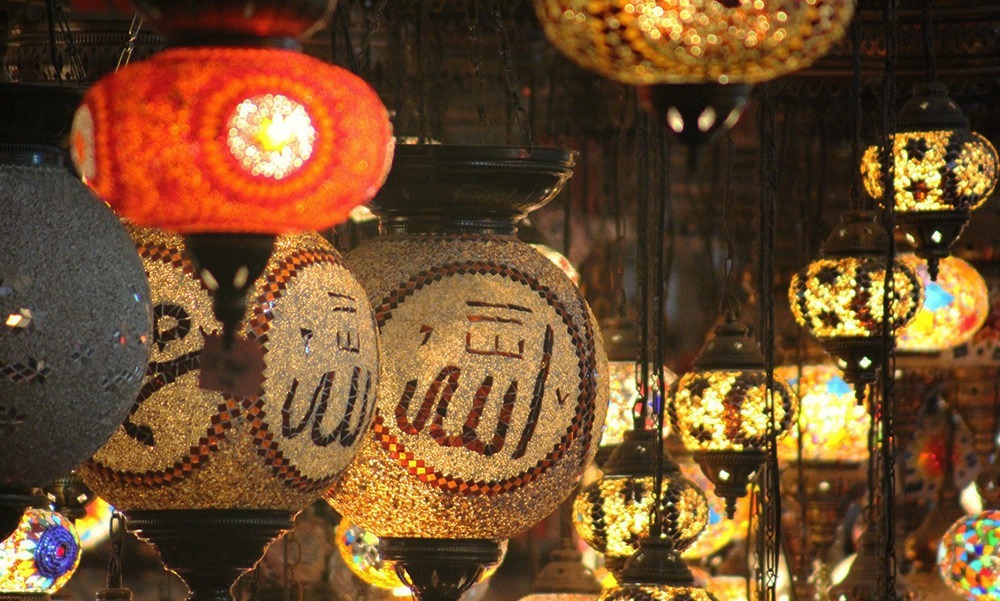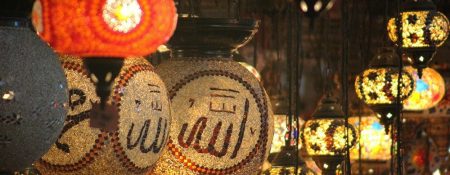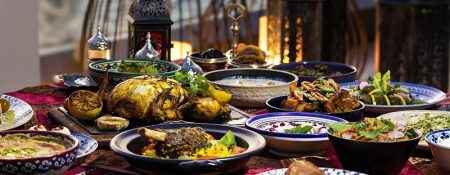
Announcing believers about the time of Suhoor Mesaharati walked the streets before dawn – the tradition that gradually becoming a thing of the past, being replaced by modern alarm clocks. Various methods were used, most often such people beat the drum or recited poems loudly. Of course, for this it was necessary to have a loud voice and physical endurance. Often children ran around Mesaharati, and repeated the words that he recited.
It is believed that the tradition of Mesaharati, like many other customs of Ramadan, originated in Egypt. The idea that people should be awakened before dawn during Ramadan appeared during the time of Caliph Bi’amr Allah. But at first this task was carried out by soldiers, and only later at the beginning of the 15th century the occupation acquired the form of an individual profession. And the first Mesaharati was the Egyptian Governor Otbah Ibn Ishaq in 1432 CE – so this tradition goes back almost 600 years. He personally walked the streets of the city to the mosque and called for believers to eat Suhoor and pray.
Mesaharati could also wake people, knocking with a stick on their doors or windows, often used whistles or reading prayers loudly. Sometimes, this tradition existed, for example, in Sudan, Mesaharati went with the child, who shouted the names of the villagers. Most often, the role of Mesaharati is performed by men, who may belong to the same family and pass this tradition from generation to generation.
O Allah, on this day, beautify me with covering and chastity, cover me with the clothes of contentment and chastity, let me adhere to justice and fairness, and keep me safe from all that I fear, by Your protection, O the protector of the frightened.




Ramadan, the holiest month in the Islamic calendar, is a time of spiritual reflection, self-discipline, and communal unity for Muslims around the world. In the United Arab Emirates (UAE), Ramadan holds significant cultural and religious importance, shaping the rhythm of daily life and fostering a unique atmosphere of warmth and spirituality.
The vibes of Ramadan in the UAE are palpable, as the entire country undergoes a transformative experience. From the breaking of dawn until the setting of the sun, the streets come alive with a sense of anticipation and reverence. The bustling cities slow down, and a serene ambiance takes over as families and communities come together to observe this sacred month.
One of the most cherished aspects of Ramadan is the spirit of giving and charity. Throughout the month, Muslims are encouraged to practice acts of kindness, generosity, and compassion towards those less fortunate. In the UAE, numerous charitable initiatives and community-driven efforts are organized to support those in need, reflecting the country's commitment to fostering solidarity and empathy.
The cultural importance of Ramadan in the UAE is deeply ingrained in the fabric of society. It is a time for strengthening familial bonds, reconnecting with loved ones, and honoring traditions passed down through generations. Families gather each evening for Iftar, the meal to break the fast, where a rich tapestry of traditional Emirati cuisine is shared and enjoyed in a spirit of unity and gratitude.
The UAE also embraces the diversity of its population during Ramadan, with residents from various cultural backgrounds coming together to partake in the festivities. Non-Muslims are welcomed to join in the spirit of Ramadan, participating in community events, and sharing in the sense of togetherness that defines this auspicious month.
Celebrations during Ramadan in the UAE extend beyond the confines of the home, with vibrant Ramadan tents set up in public spaces and hotels offering lavish Iftar buffets. These gatherings serve as focal points for socializing, where friends and colleagues come together to enjoy sumptuous meals and engage in lively conversations late into the night.
As the month draws to a close, the atmosphere becomes even more heightened with the arrival of Eid al-Fitr, the festival marking the end of Ramadan. Streets are adorned with festive decorations, and families gather to celebrate with feasts, gift-giving, and prayers of gratitude.
In essence, Ramadan in the UAE is a time of spiritual renewal, cultural celebration, and communal harmony. It serves as a poignant reminder of the values of compassion, tolerance, and unity that form the bedrock of Emirati society, making it a truly special and cherished time for all who call the UAE home.